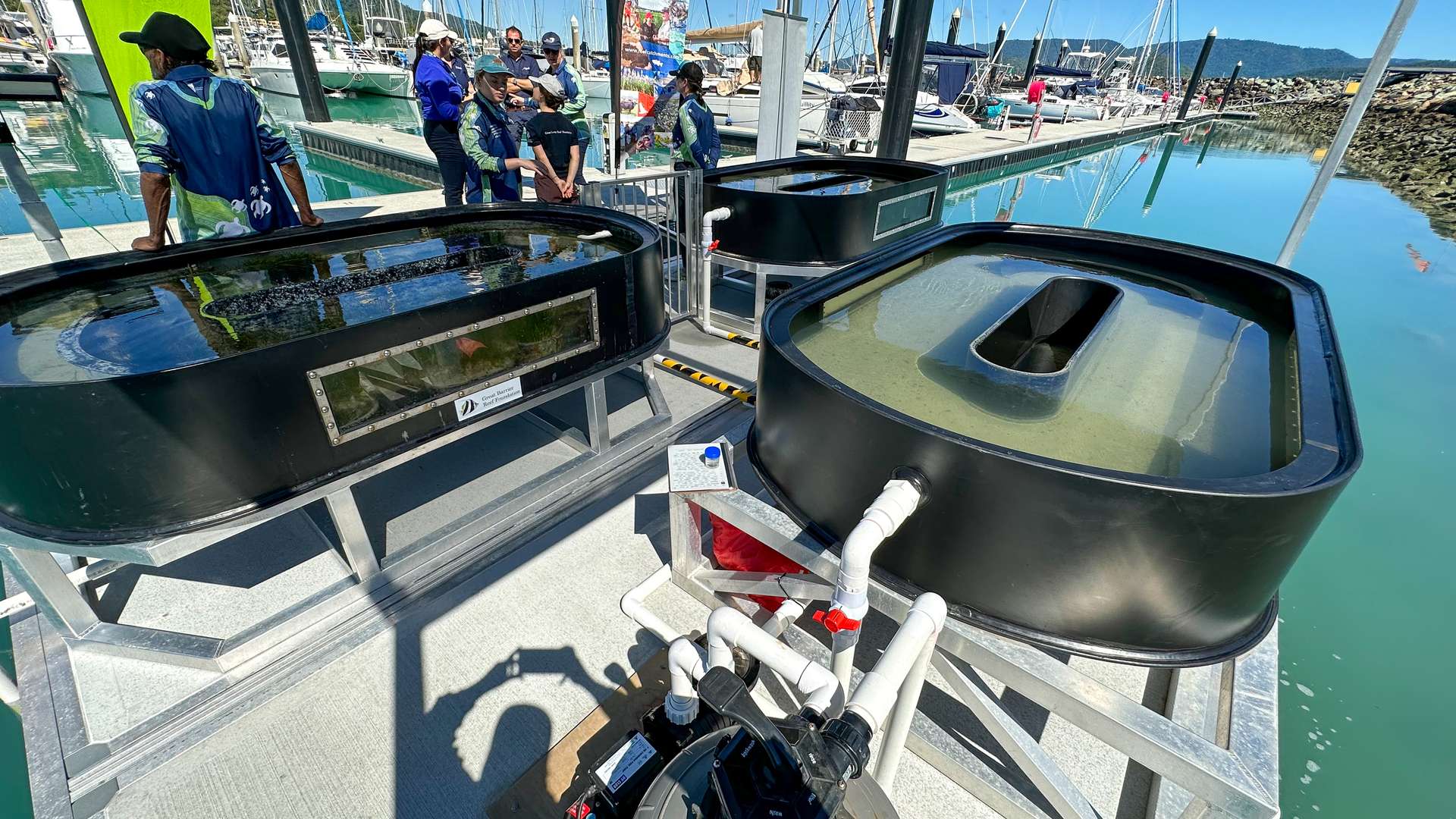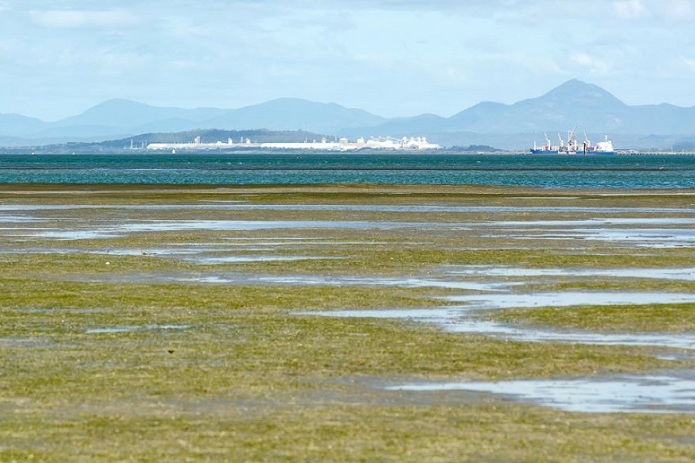CMERC Facilities and Equipment

It's all about doing our research where it matters most.
CMERC researchers are supported by all of the tools of the trade needed to monitor and manage coastal ecosystems, from boats to laboratories fitted with the latest in high-tech analytical equipment.
A description of our facilities is below, or you can take the CMERC Virtual Tour.
Queensland's Only Seagrass Nursery
CMERC features world-class research infrastructure, including Queensland’s only seagrass nursery fitted with:
- A tidal mesocosm system at the Gladstone Marina Campus
- Indoor flow through/static mesocosms
- Recently upgraded ecotoxicology, microscopy and wet labs
- Water quality monitoring instruments, including EXO2 sonde with deployable monitoring buoy, ProDSS sondes, light and temperature loggers
- Growth chambers
- Freeze driers
- TOV-2 Towed Video system
- Vehicles and vessels, including 4WDs and the 5.9m ‘Mudskipper'
- Baited Remote Underwater Video Stations
- Fishing gear (e.g. seine nets, gill nets and crab pots)
- Diving Pulse Amplitude Modulated Fluorometer
- Sediment samplers
- A Malvern Mastersizer 3000 laser diffraction particle size analyser
CQU's state-of-the-art Central Queensland Innovation and Research Precinct (CQIRP) in Rockhampton houses dedicated laboratory spaces with:
- Liquid Chromatography Mass Spectrometry (LCMS) Triple Quad – for identifying new compounds and quantifying compounds at trace levels
- Gas Chromatography-Mass Spectrometry (GCMS) – for identifying volatiles in food, beverages, soils and water matrices
- Inductively Coupled Plasma Mass Spectrometry (ICPMS) – for identifying minerals at trace levels
- Fourier Transform Infrared Spectrometry (FTIR) – for non-invasive and rapid chemical characterisations of macronutrients and bioactive compounds, particularly in food, and
- High Sensitive Potentiostat – for customised non-invasive field sampling and screening physiological samples for disease biomarkers and neurotransmitters.
As well as supporting CMERC's coastal marine ecosystem research, the facilities also support CQU's teaching programs, ensuring the next generation are exposed to the latest innovation and cutting-edge equipment to succeed in their careers.

